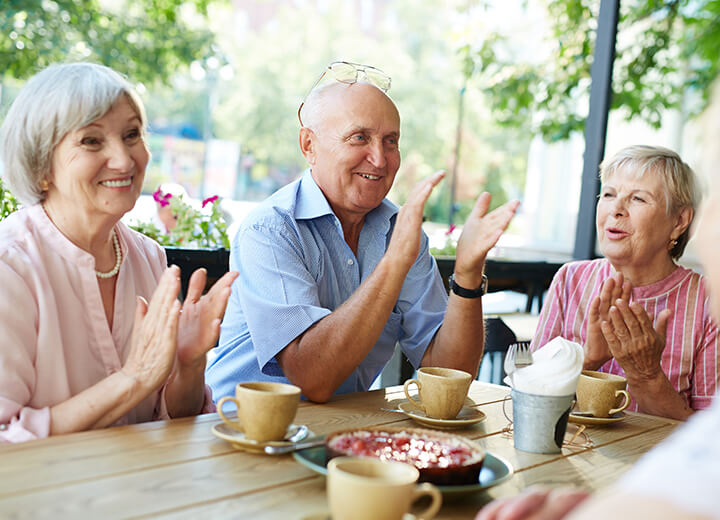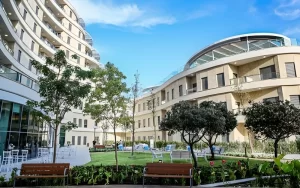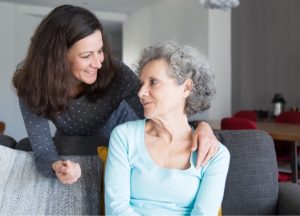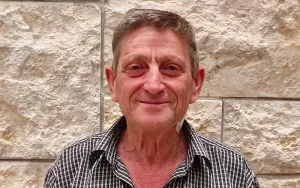Joseph Mertzkov
“In Argentina, we were educated on the shoulders of Zionism. I already held adoctorate inchemical engineering. I established a connection with Professor Chaim Weizmann, who acceptedme at Ben-Gurion University in 1972. In the late 1980s, I was elected head of the Department ofChemical Engineering, and I initiated a specializationin biochemical engineering.
“How complex or challenging was the journey toward realizing your vision?
“I don’t like words like ‘bursting’ vision. The Negev was indeed the realization of Zionism for itssake, according to Herzl’s vision, the Balfour Declaration, and the first Prime Minister, David Ben-Gurion. I am a modest person and did the best I could.
“Who assisted you on the path to realizing your vision, and do you think its realization requires team work?
“All the people in the Faculty of Engineeringat Ben-Gurion University. I always received help inso many areas. I was already a professor abroad, and after 4 years, I also received a degreefrom Ben-Gurion University. After 5 years, I became a professor on the regular track. When Iretired in 2006, Iwas granted the title of Professor Emeritus (with international recognition) andbecame a research mentor.
“Regarding the idea that formulating a vision and walking in its direction often needs to be the’lonely runner on the track,’ what do you thinkabout it?
“It’s impossible to do anything alone; all the fun is working in collaboration with others. In myeyes, the big thing is working with the students, research students who serve as the nextgeneration. I have students from the United States, Australia, and China who returned to theircountries to spread the message, and of course, from Israel.
“Do you think Israeli society is open to changes and initiatives?
“Certainly, society is open. My experience is that in many places, the image of the State of Israel and its status are so prestigious that I sometimes feel they exaggerate in praising us. I am very proud of our research, especially in Spain and South America, where Israel is an example, a model of high academic research status. It fills me with pride and great honor, to the point where I sometimes felt embarrassed.”What do you wish for the Negev community in the context of vision and realization, looking aheadto the next decade?”That all the plans regarding the scientific and technological areaat the Faculty of Engineering atBen-Gurion University will be implemented and bear the fruit we hope for.
“How is life at Palace Lehavim?
“I do a lot of things here, mainly busy writing my memoirs. I almost don’t engage in professionalengineering research anymore; I left it all behind, and I mostly write.”
“I participate in groups for creative writing, bridge, gymnastics, and Latin dances (!).”
“We are fortunate that our daughter lives in Lehavim, and our son and daughter-in-law live inMetar. They visitus a lot, so the realization of the vision in the Negev is the heritage of the entire family.
Yehudit Marom
At the age of 74, Yehudit Marom, a widow, arrived in Palace Lehavim from Omer two years ago.
“My late husband, Lior Marom, a resident of Mitzpe Ramon, served in the IDF, and at the age of52, he passed away suddenly from a heart attack while driving to visit me,” she recalls with aheavy heart. “Palace Lehavim deserves a great deal of credit for the assistance and support Ireceived when the tragedy happened.
“Today, Yehudit is left with 2 daughters and 7 grandchildren.
“I came from the special education field, working as an integrated teacher for children withlearning disabilities, especially focusing on the Bedouin community in the past two years.
“Why specifically in the Negev?
“I didn’t have a choice. I arrived in Be’er Sheva in 1949, the city where I grew up, we lived in Be’erSheva and Omer.
“What values have guided you?
“Stand up and walk the land with a cane and map. I raised my children tolove the land, just as Iwas raised.
“Who helped you on your way to realizing your vision, and do you believe that its realization requires teamwork?
“The Bnei Akiva movement instilled in me proper values and the right path (though I’m notreligious) forthe love of others.”
“I volunteer around the clock, fulfilling my vision in the Negev, like someone who volunteers and contributes more than just giving.
“What motivated you to realize the vision specifically here in Be’er Sheva, especially in PalaceLehavim?
“Here in PalaceLehavim, I am a member of the beautiful Yefe Nof neighborhood council in Be’erSheva. I volunteer in ‘Ruach Daromit,’ an association for cancer patients receiving alternative treatments.”



